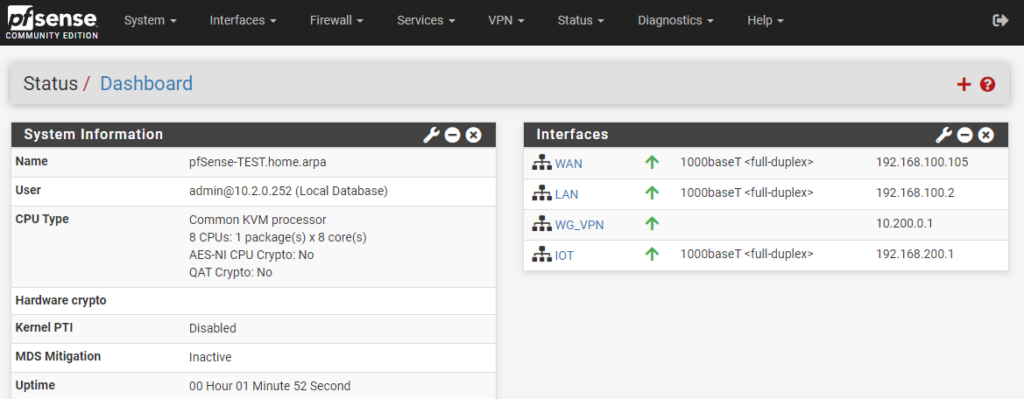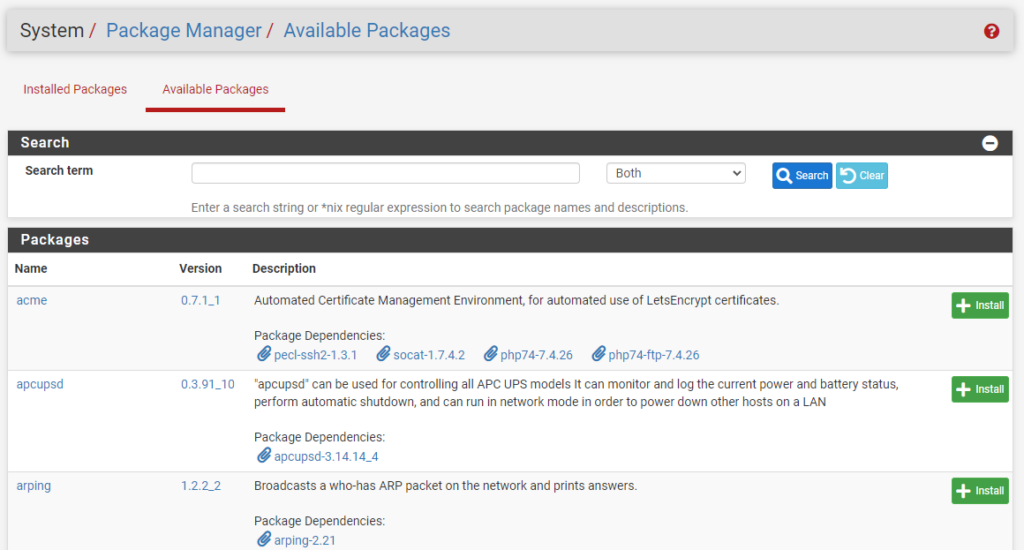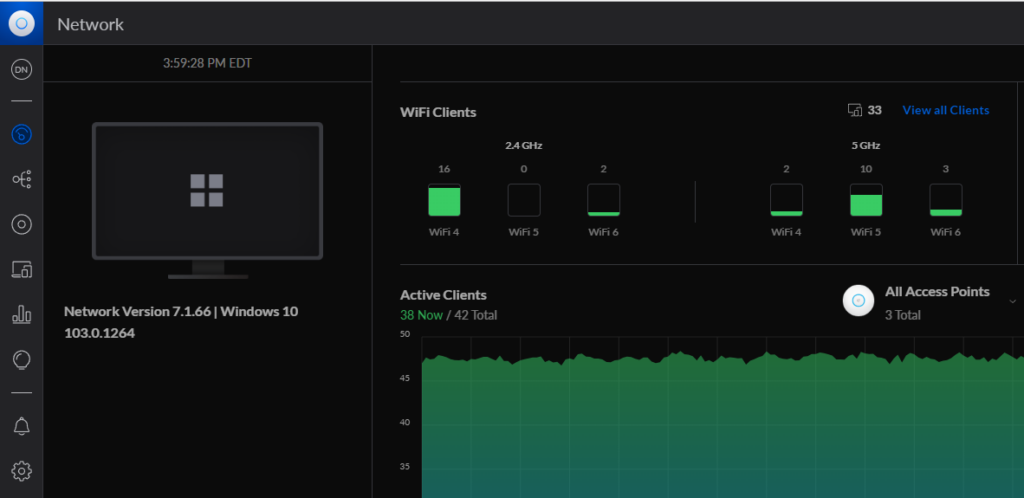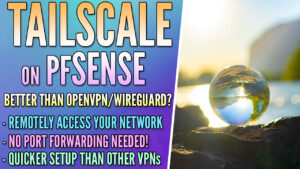In this article, we’re going to look at pfSense vs. Ubiquiti (Unifi).
The first thing that we need to get out of the way is that pfSense is a free and open-source firewall and router that can be run on various different types of hardware. Ubiquiti devices are hardware devices that can be controlled via the Unifi Controller. There are extreme differences between both and your decision on which route you want to take should ultimately be determined by your goals.
The links below are Amazon affiliate links which means that I earn a percentage of each sale at no cost to you. Thank you for your support.
pfSense vs. Ubiquiti (Unifi)
We’re going to break down this debate into various sections so that you can learn some of the key differences between both of these devices.
Hardware – pfSense vs. Ubiquiti (Unifi)
We’re going to break down the different hardware choices you have below.
pfSense Hardware
As mentioned above, pfSense is a software solution, rather than a hardware solution. You can purchase supported hardware from a company called Netgate, but the key point that you need to be aware of is that the hardware offered is generally a router and firewall ONLY. You can get pfSense working with Wi-Fi, but the general consensus (from Netgate) is that external access points will function better.
You also can entirely bypass purchasing the device from Netgate, and instead, purchase something like a Protectli Vault FW2B or Protectli Vault FW4B which will allow you to easily install pfSense on it and run your own router/firewall hardware. You can also entirely bypass purchasing a router and dedicate an old desktop PC with something like an Intel i350 NIC to run an extremely budget-friendly pfSense setup.
The key point to remember here is that pfSense is software and that you will have a plethora of options as far as the physical hardware goes.
Unifi Hardware
Comparing pfSense to the Unifi devices that you can purchase from Ubiquiti, there are tons of different hardware combinations that will fulfill just about everyone’s desires. If you want an all-in-one device, you can buy something like a Unifi Dream Machine or Unifi Dream Router. If you want to have a more powerful network setup, you can buy a Unifi Dream Machine Pro, Unifi Switch, a Unifi Access Point, and you’ll have a system that’s extremely customized and will fulfill just about any requirements you throw at it.
There isn’t a right or wrong answer as far as which path you should take, but it’s important to realize that you have many different options and can buy an all-in-one device without configuration if you’d like – something that’s not possible with pfSense.
pfsense + Unifi
While you can technically purchase pfSense or Unifi networking gear, another thing to keep in mind is that you can use pfSense with Unifi switches and access points if you’d like. This can give you the “best of both worlds” and will allow you to use pfSense as your firewall/router, with Unifi switches/access points behind it. This is how I currently have my network set up.
Software – pfSense vs. Ubiquiti (Unifi)
The differences in software are extreme and we’ll quickly take a look at them below.
pfSense Software
For anyone who has used pfSense, you’ll know that it’s slightly confusing at first. However, that confusion is mostly due to the fact that it’s extremely powerful. Unlike most other firewalls, you can customize just about anything inside of pfSense.

There are also tons of different packages that you can install which will customize the experience of pfSense even further. Fairly complex things like network intrusion prevention and detection (IDS/IPS), reverse proxy software, or even a DNS blocker like pfBlockerNG. The key point is that you can truly customize your overall experience.

There is also a tremendous benefit in the sense that you can run OpenVPN or WireGuard on pfSense – something that’s not possible with Unifi devices currently. This means that you’re able to run some of the most trusted VPN solutions on the market right inside of pfSense.

There are so many more benefits to pfSense, but the biggest point that I want to make is that it’s powerful but initially confusing. If you’re a network engineer, you’ll most likely be able to pick up pfSense relatively quickly and set up VLANs, VPNs, or customize the firewall without much effort. However, if you’re not, you might be overwhelmed. This isn’t said to detract from pfSense, because it’s awesome, but if you’re someone who doesn’t like to tinker, you might not want to use pfSense.
Unifi Software
The Unifi software that you’ll use is called the Unifi Controller. The Unifi Controller is awesome and can be run standard on specific Unifi devices (Dream Machine/Router) or by purchasing a Cloud Key. If you don’t have one of those devices, you can also self-host the Unifi Controller to ensure that you’re able to properly manage your hardware.

The Unifi Controller allows you to see a Network Topology, set up VLANs, Wi-Fi networks, or an L2TP VPN. There’s also a Firewall and many other settings that can be customized.

The biggest thing to remember with the Unifi Controller is that it’s more user-friendly than pfSense, but it’s also limited in functionality. Where pfSense will allow you to customize or implement just about anything, Unifi routers/firewalls can’t. The overall consensus is that they’re powerful when compared to a traditional router that most home users have, but not when compared to a full, feature-filled software package like pfSense.
Conclusion – pfSense vs. Ubiquiti (Unifi)
This article looked at pfSense vs. Ubiquiti (Unifi). There isn’t a right or wrong answer in terms of picking between pfSense and Unifi devices. Overall, you need to assess your situation and determine what you actually want to use. If you’re interested in running OpenVPN or WireGuard on your router, you need to go the pfSense route (or an entirely different route if desired). If you just want something that’s easy to set up and will run well, you’ll be very happy with Ubiquiti devices.
Thanks for checking out the article on pfSense vs. Ubiquiti. If you have any questions on pfSense vs. Ubiquiti, please leave them in the comments!




